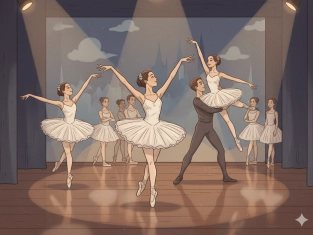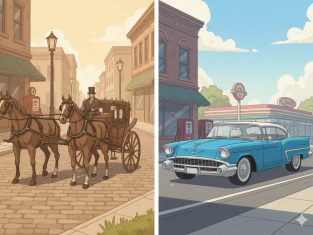Third Conditional
Table of Contents
Exercises
Explanation
It describes:
-
a past condition that did not happen
-
an imagined result that also did not happen
1. Structure
If-clause (condition)
If + Past Perfect (had + V3)
Main clause (result)
would / could / might + have + V3
Examples:
-
If I had woken up earlier, I would have caught the train.
(I woke up late, so I missed it.) -
If she had checked the weather, she could have taken an umbrella.
(She didn’t check, so she got wet.) -
If they had followed the instructions, they might have solved the problem.
The order can change:
-
We would have finished earlier if everyone had helped.
Comma rule:
Add a comma only when the sentence begins with the “If…” clause.
2. When Do We Use the Third Conditional?
A. To imagine a different past
We talk about a past situation that cannot be changed anymore.
-
If I had known about the sale, I would have bought cheaper tickets.
B. To express regret or disappointment
Often connected to feelings of “I wish things were different.”
-
If he had told the truth, I would have trusted him.
C. To criticize someone's past decisions
Useful when pointing out mistakes.
-
If you had locked the door, the bike wouldn’t have been stolen.
D. To give advice about the past (“should have”)
Used to show what the right action would have been.
-
You should have taken notes during the meeting.
-
I should have planned my time better.
3. Using Different Modal Verbs
We choose the modal verb depending on the meaning we want:
|
Modal Verb |
Meaning |
Example |
|
would |
certain result |
If she had invited me, I would have come. |
|
could |
ability / possibility |
If we had left earlier, we could have found seats. |
|
might |
small possibility |
If he had slowed down, he might have avoided the accident. |
4. Questions in the Third Conditional
Use wh-word + would have + V3:
-
What would you have done if you had lost your passport?
-
Where would you have stayed if the hotel had been full?
5. Alternatives to if
We can use other conjunctions with a similar meaning:
Unless (= if not)
-
They wouldn’t have passed the exam unless they had revised.
In case
-
In case she had needed support, we would have helped her.
On condition that
-
He would have joined the team on condition that they had respected his schedule.
Quick Summary
|
Meaning |
Form |
Example |
|
Imaginary past situation |
If + Past Perfect → would / could / might + have + V3 |
If I had seen the message, I would have replied. |
The Third Conditional allows us to reflect on the past, analyse causes and consequences, and discuss unreal or ideal versions of events. It is a valuable tool for storytelling, conversation about past decisions, and expressing how life might have been different.

